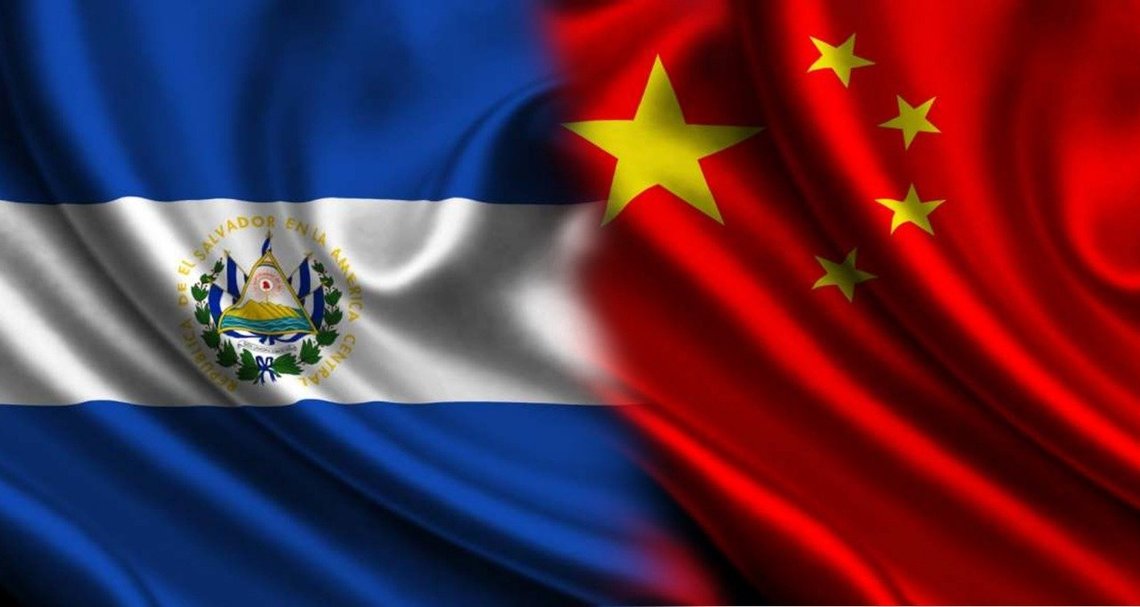RIO DE JANEIRO, BRAZIL – Salvadoran President Nayib Bukele praised China for investments in the country and received a blunt warning from the United States.
“US$500 million in non-refundable public investment with no strings attached. Two FOMILENIOS (Second Millennium Challenge Corporation Compact) in one. And no counterpart,” said the president on Twitter.
Julie Chung, the Acting Assistant Secretary of State of the U.S., replied: “Mr. President, nothing from China comes with no strings attached.”

The Legislative Assembly of El Salvador on Tuesday ratified a cooperation agreement for the construction and donation of infrastructure works to the Central American country.
The framework agreement for the “Economic and Technical Assistance between the Government of the People’s Republic of China and the Government of the Republic of El Salvador” was passed with 66 votes of the 84 deputies of Congress, with a large majority of the ruling party.
Although Bukele spoke of “US$500 million in public investment,” the passed document does not state the total amount that the infrastructure works will cost.
The agreement, signed by the governments of El Salvador and China in September 2019, was not discussed further and was not read in the committee in charge or in the plenary session.
A public document from the Ministry of Foreign Affairs reports a “non-refundable donation” agreement for 400 million yuan, or over US$62 million.
These funds would be earmarked to finance the construction of a library in the capital, a water treatment plant in the coastal area and another plant to purify water from a lake near the capital.
The projects agreed with China, according to the deputies of the ruling party New Ideas (NI), include a national stadium stadium and a new pier.
Details of the agreement
The ratified agreement states that the projects will be linked to “social welfare sectors,” such as public infrastructure, water and sanitation, energy, health, education, social welfare, culture, tourism, sports and transportation, according to a copy posted on the transparency website of the Salvadoran Foreign Ministry.
“The Chinese side offers the productive materials, technical products or individual equipment, with the relevant technical services,” the document states.
With the ratification, El Salvador committed to “lifting the limitations of immigration permits for the Chinese personnel in the project, as well as for their spouses and lineal relatives.”
In addition, the salaries of Chinese workers will be exempt from taxes and any medical care they may require will be provided “in accordance with Salvadoran law.”
Materials imported by China will also be exempt from taxes. In addition, El Salvador will be in charge of the reception, domestic transit and storage of the materials.
On August 20, 2018, El Salvador announced the rupture of relations with Taiwan to establish ties with China, when the country was governed by leftist Salvador Sánchez Cerén, of the Farabundo Martí National Liberation Front (FMLN).
This ratification came at a time when relations between El Salvador and the United States are tense. These tensions increased after the Legislative Assembly voted to dismiss five magistrates of the Constitutional Chamber of the Supreme Court of Justice (CSJ) and the Attorney General.
The U.S. government is one of the most critical of this measure and the special envoy to the Northern Triangle of Central America, Ricardo Zúñiga, said that “the best solution to the unfolding crisis is to return to the previous situation.”
The U.S. Department of State has also released a list of Salvadoran officials and politicians allegedly linked to acts of corruption and drug trafficking. Among those named is Bukele’s chief of staff, Carolina Recinos, one of the officials closest to the Salvadoran president.
Bukele’s change of position
Following the ratification of the agreement with China, a video went viral in recent hours in which Bukele stated that “China is not following the rules. They do not respect the rules, they do not respect trade rules, they make projects that are not feasible and leave countries with huge debts that can’t be paid.”
He added: “They manipulate their currency and then they want you to respect it. They are not a democracy but they meddle in your democracy.”
“We want to be China’s friend but China has to be our friend, not with money or investments, but with respect,” the head of state of the Central American country said some time ago.

